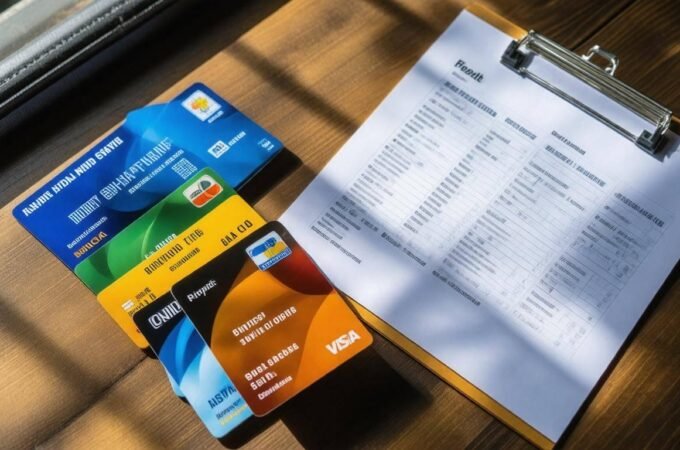
8 FINANCIAL TIPS FOR YOUNG ADULTS
“Adulting” is always going to be an uphill battle. However, managing your money can be worse.
Come to think of it, being literate is one of the most important lessons we learn as kids. Many of us are also taught fundamental survival skills, like housework and cooking. But how many of us are told about the fundamentals of financial and money management? Although they may appear confusing, these subjects are the cornerstone of our daily existence. Money is fundamentally woven into many activities, from buying college textbooks to paying your first rent.
Thus, learning how to do it right is vital. In addition, managing your money wisely gives you more time to concentrate on the things that matter most in your life. Fortunately, gaining control of your funds is not as difficult as you think. In light of that, here are some pointers and tricks for better money management for young adults.
Set up a budget.
Even though we were advised to budget while in school, it’s reasonable to assume that most people don’t. However, now that you’re truly making a living, you need to determine how to cut your expenses. You have bills to pay and regular expenses like groceries and gas. There will, of course, be room for discretionary spending, but without a budget in place, you run the risk of spending more money than you can afford.
On the other hand, if you are deep in debt and need a quick influx of money to pay for your expenses, then a personal loan may be the best option. Nectar is a reputable personal loan provider specializing in a series of plans guaranteed to make your life easier. Visit https://nectar.co.nz/personal-loans/ for more information.
Educate yourself.
People will always find ways to exploit your money for you if you don’t learn how to manage it yourself. Some of them, such as fraudulent financial planners, might have harmful motives. Others might have excellent intentions, but they might not fully understand your situation. Take control of your financial future by reading a few fundamental books on financial planning rather than depending on unqualified strangers for guidance. Once you have the information you need, remain focused. Avoid being sidetracked by anyone, including a companion who drains your bank account or acquaintances who pressure you to spend a lot of money weekly.
Make a list of both mandatory and optional spending.
Making sure you have enough money for your needs is the primary goal of a budget. But if you can, giving yourself some leeway to indulge can be beneficial. For example, rent, electricity, transport, food, and other applicable charges like phone bills or school fees are all necessary expenses. In contrast, discretionary expenses are items you spend money on but don’t require, such as eating out, catching a cab, purchasing new clothing, or subscribing to streaming services.
Put your cash away.
For at least three months, you should abstain from using mobile payment services like Zelle or Venmo. Instead, charge all your purchases to a credit or debit card with no annual fee to track your spending by reviewing your account. Identifying essential expenses is the best course of action. Debit cards guarantee you’ll only spend the cash you have on hand at the moment, but a credit card offers more vital fraud protection. If you use a credit card, make a monthly balance payment in full to prevent incurring interest fees.
Maintain a high credit score.
The stability of your credit score has a massive effect on your financial well-being. Your credit score and record are crucial to your adult years, from getting credit cards to getting your first flat or getting approved for a vehicle loan. In addition, you’ll be able to take on life’s most memorable projects knowing your credit will act in your favor.

Establish an emergency fund.
Pay yourself first is one of the most repeated adages in personal finance. It’s wise to include some amount—any amount—of cash in your plan to save in an emergency fund each month, regardless of your debt. Saving money for unexpected expenses can help you avoid financial stress and save for a better future. You’ll quickly have more than just emergency funds held up if you develop the practice of saving money and see it as a non-negotiable “cost.” You’ll also have savings for retirement, vacations, and even a deposit for a home.
Make a strategy to pay off your debt.
In your 20s, your debt may be more outstanding than your yearly salary. Your five- or six-figure debts can easily be viewed as an arbitrary number, and you may not even be aware of how much they may be weighing you down. That is a risky way of thinking.
The majority of young adults in the US have debt. If you also have credit card debt, you might end up paying it off until you retire. To reduce your debt, you must pay it off quickly. Make sure to exercise caution when using your credit card to avoid letting your debt out of hand. You must also control your expenses and adhere to your budget. You can further study tactics to reduce your debt to get a good idea of where to start.
Don’t forget to give back!
It is time to give back when you gain control of your money. You can help others by making time or monetary donations. You’ll be able to donate more money and time to organizations you care about if you manage your money well. Even if all you can do is share your newly acquired personal finance knowledge with someone who needs it.
Conclusion
Managing your finances is not impossible, but you must begin somewhere. Small steps taken along the way can prevent a significant financial calamity in the future. So use these tips to take charge of your finances right away. If followed correctly, these tips will further position you for financial freedom.




